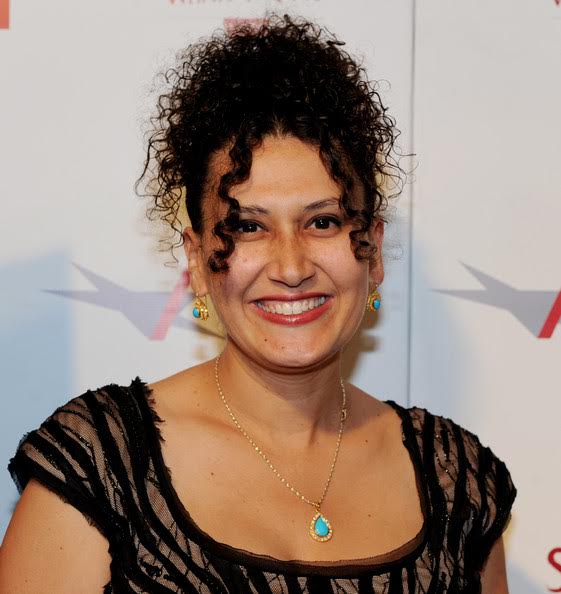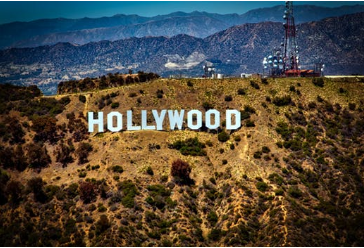Film and television director Rachel Goldberg shares the lessons she has learned as a leader in the film industry.
What’s the best piece of advice you’ve ever been given?
When I graduated, I was deciding between whether to pursue psychology or theater. I had a friend who said: “I want you to sit and close your eyes. Think about where you want to be in five years. What does that look like? What’s that world? What brings you peace? Just imagine and see what that is for you.” For me, it was art. After graduation, I tried to work in psychology, but switched industries to work at a production company. Eventually, I only applied to graduate school to study art. It is important to think about where you want to be, look deep in your heart, and try really hard not to be scared. It’s difficult, because we have to be responsible human beings, but just follow your heart, and never give up. You have to keep fighting for what you believe in and want.
How did your educational background prepare you for your work as a filmmaker?
I was a theater and psychology major at the University of Pennsylvania. My theater training was fantastic – we were taught how to break down scripts, how to find character objectives and goals, and how to do proper scene and script analysis. As a psychology student, I was taught to examine how the human mind works and to analyze human behavior. I think that this combination of majors has shaped everything I’ve done since I was in school. It has influenced my work as an actor, as a director, and, in particular, as a writer. The writer has to make sure that there are goals for each of the characters, that there is conflict in every scene, and that the characters are trying different tactics to get what they want. My background has absolutely informed my work – I find that even when I’m teaching, I do so from that same multidimensional point of view.
You both direct and write. How do the two overlap and interplay?
They’re different paths. I’ve directed things I have and haven’t written. They’re very different processes. When I’m writing, I can see the story in my head and I become the characters – they speak to me. I can literally hear them talking and they sometimes surprise me with what they say and do, even if I know what I want the story to be and where it’s going. When I put on my directing hat, I have to look at what is on the paper as a blueprint and translate it visually and bring the emotion to life – how do I bring multiple elements together – performance, composition, and visual design? How can I take the journey that my characters are on and translate it into film? I get to play with visual metaphor and I get to collaborate with my team. Even if I thought about a scene a certain way, the actors always see something that I hadn’t before, which is magical and my cinematographer, production designer, editor, composer, and the rest of my creative team always add more than I could have ever seen on my own.
Directing theater is yet another facet that I get to explore – with theater, I envision space differently than I would in film. I get to think of pictures in a whole different way because I’m mainly painting them with people. The rehearsal time I’m given in theater allows me and my actors to discover even more beneath the text, which is always exciting. In theater, we can physically feel, hear, see the audience and we can engage with them in a different way which changes the dynamic and creates its own magic.
What role does flexibility play in your work?
My job requires a tremendous amount of flexibility. You have to know what you want and be very clear with your vision. At the same time, you never know what is going to happen in a day, and you never know what your team is going to bring you. You have to be flexible, open, and receptive so you can create the most powerful art possible.
What inspires you to write and direct films, like Muted or Neighbors, about politically poignant topics?
I would say that my work is political; some of it, like Muted, is overtly political. I think my stories are character-driven at heart, always with a component of social justice, of tolerance, understanding, and empathy. My family is Jewish and my mom’s side of the family escaped Iran and came to America. I was very lucky to grow up in a tiny community on the East Coast with all my aunts, uncles, and grandparents. My family escaped persecution and came to this country, and so the idea of loving one another is in my DNA – we’re all just humans and we have to appreciate one another. At the same time, being first generation, it’s hard to fit inside the box of one culture. I’ve never felt quite American, and I’m not quite Persian either. I always have this feeling of other-ness and a feeling of standing on the outside looking in. I think that because that is my experience, I always try to see things from other people’s perspectives and be empathetic when I can.
What role does teaching play in your career?
It’s the most wonderful gift on the planet. I love teaching. I learn from my students constantly, and I come home so happy: I just got to spend my entire day creating art with people that I respect – they’re so creative and so talented – and help them find their voices! It also keeps me fresh – I’m hearing other people’s stories and have to be really quick in figuring out what works and what doesn’t. I’m constantly having to challenge myself and to grow as a person, as a filmmaker, as a storyteller. I am so grateful that my work allows me to pursue my art while celebrating other people’s art.
What advice would you give to young women in the film industry?
If you want to pursue this path more than anything in the world, don’t let anybody ever tell you no. Everyone’s voice is important, and you have something to say. So if this is what you want, do it! Don’t let anybody stop you.
Contributor: Or Gozal



Comments (0)